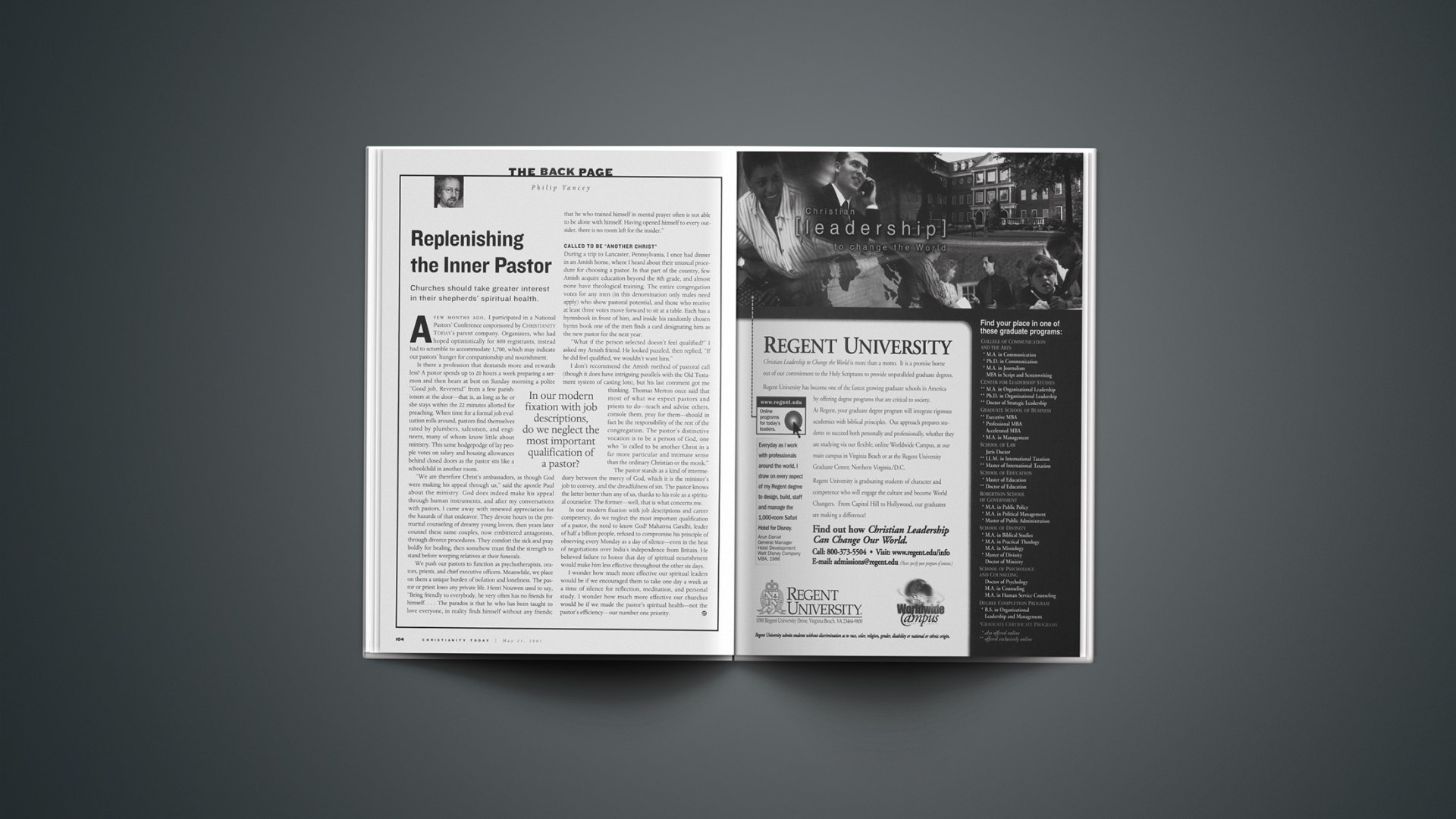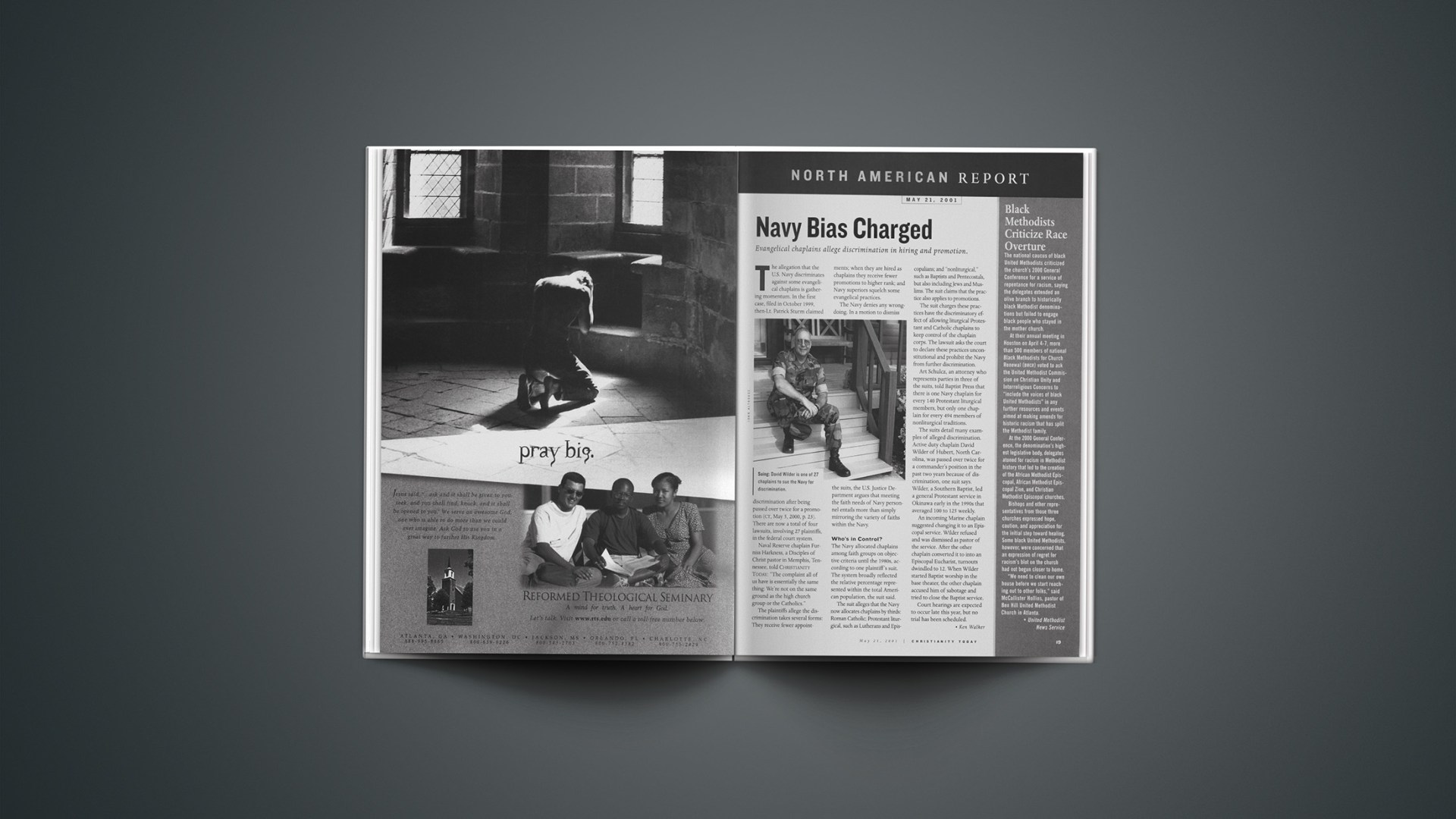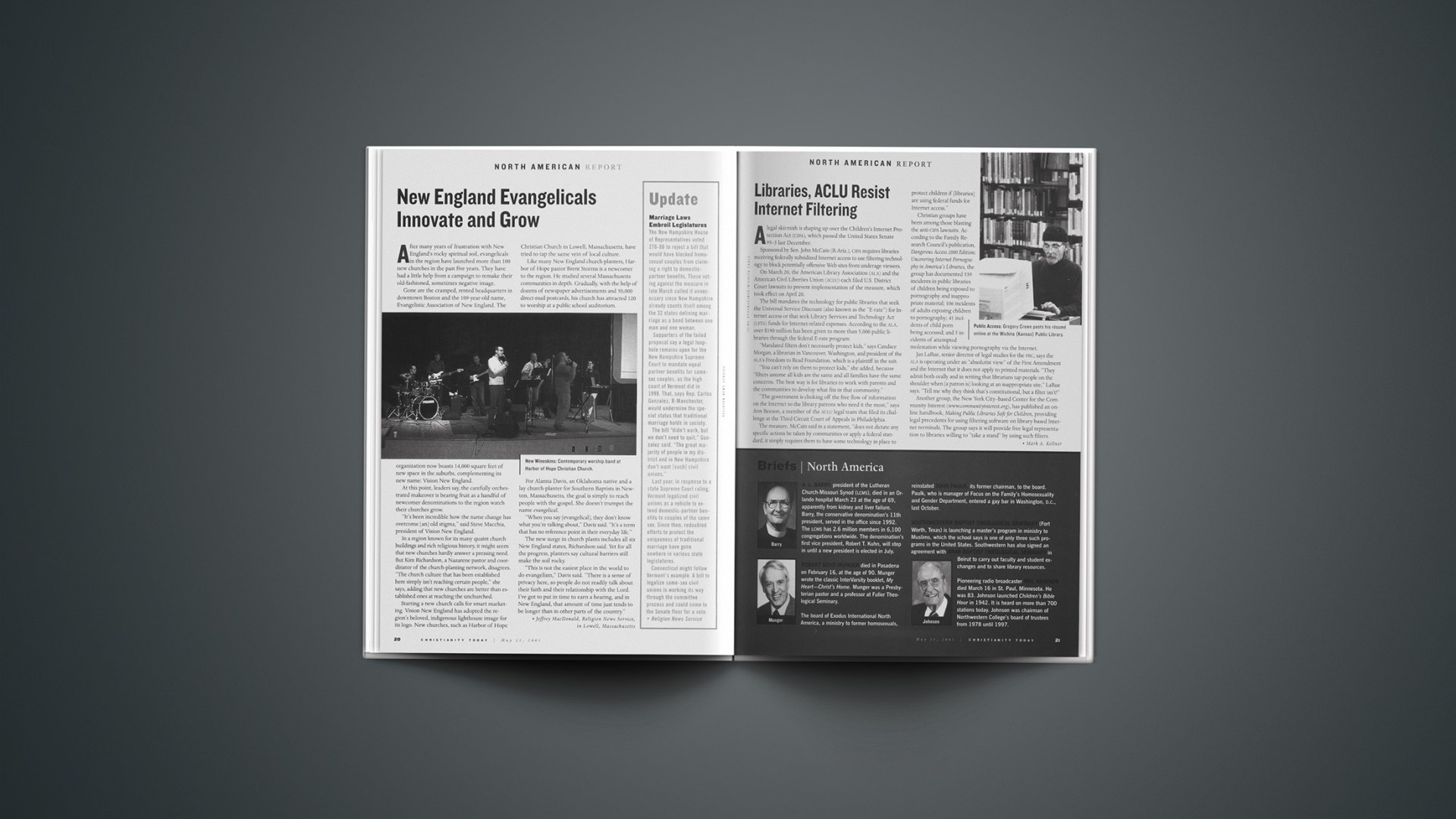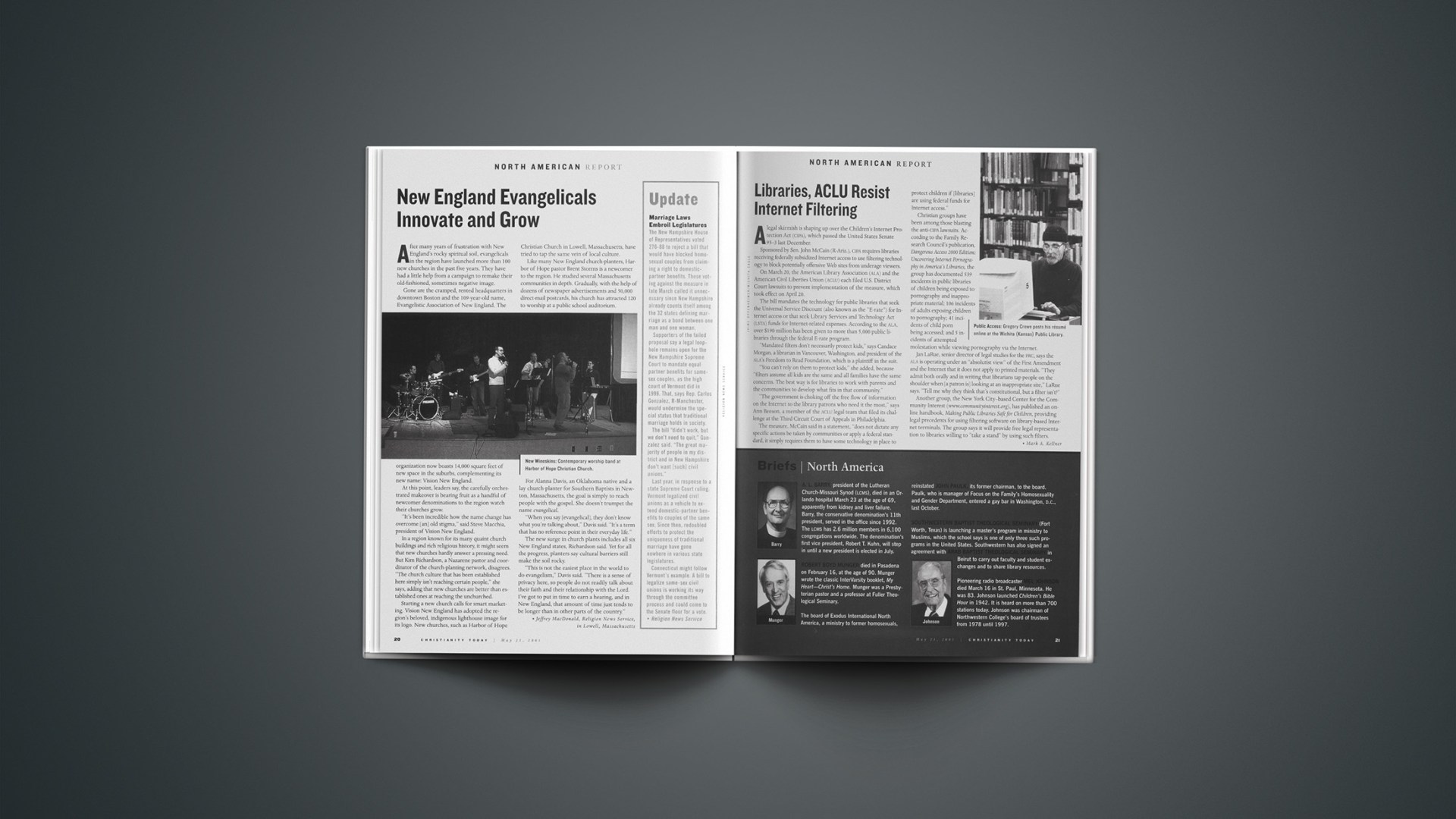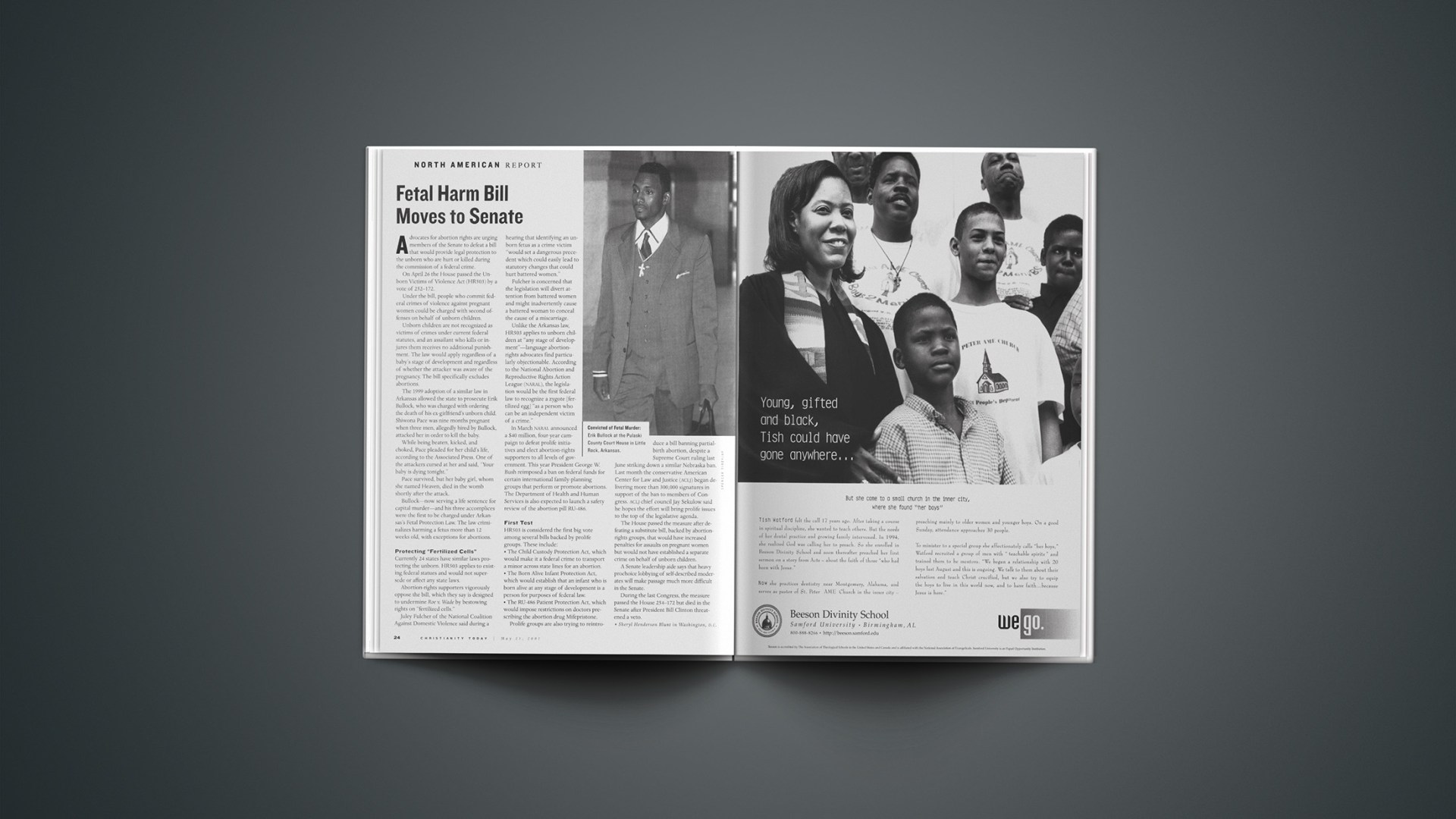Is there a profession that demands more and rewards less? A pastor spends up to 20 hours a week preparing a sermon and then hears at best on Sunday morning a polite “Good job, Reverend” from a few parishioners at the door—that is, as long as he or she stays within the 22 minutes allotted for preaching. When time for a formal job evaluation rolls around, pastors find themselves rated by plumbers, salesmen, and engineers, many of whom know little about ministry. This same hodgepodge of lay people votes on salary and housing allowances behind closed doors as the pastor sits like a schoolchild in another room.
“We are therefore Christ’s ambassadors, as though God were making his appeal through us,” said the apostle Paul about the ministry. God does indeed make his appeal through human instruments, and after my conversations with pastors, I came away with renewed appreciation for the hazards of that endeavor. They devote hours to the premarital counseling of dreamy young lovers, then years later counsel these same couples, now embittered antagonists, through divorce procedures. They comfort the sick and pray boldly for healing, then somehow must find the strength to stand before weeping relatives at their funerals.
We push our pastors to function as psychotherapists, orators, priests, and chief executive officers. Meanwhile, we place on them a unique burden of isolation and loneliness. The pastor or priest loses any private life. Henri Nouwen used to say, “Being friendly to everybody, he very often has no friends for himself. … The paradox is that he who has been taught to love everyone, in reality finds himself without any friends; that he who trained himself in mental prayer often is not able to be alone with himself. Having opened himself to every outsider, there is no room left for the insider.”
Called to Be “Another Christ”
During a trip to Lancaster, Pennsylvania, I once had dinner in an Amish home, where I heard about their unusual procedure for choosing a pastor. In that part of the country, few Amish acquire education beyond the 8th grade, and almost none have theological training. The entire congregation votes for any men (in this denomination only males need apply) who show pastoral potential, and those who receive at least three votes move forward to sit at a table. Each has a hymnbook in front of him, and inside his randomly chosen hymn book one of the men finds a card designating him as the new pastor for the next year.“What if the person selected doesn’t feel qualified?” I asked my Amish friend. He looked puzzled, then replied, “If he did feel qualified, we wouldn’t want him.”
I don’t recommend the Amish method of pastoral call (though it does have intriguing parallels with the Old Testament system of casting lots), but his last comment got me thinking. Thomas Merton once said that most of what we expect pastors and priests to do—teach and advise others, console them, pray for them—should in fact be the responsibility of the rest of the congregation. The pastor’s distinctive vocation is to be a person of God, one who “is called to be another Christ in a far more particular and intimate sense than the ordinary Christian or the monk.”
The pastor stands as a kind of intermediary between the mercy of God, which it is the minister’s job to convey, and the dreadfulness of sin. The pastor knows the latter better than any of us, thanks to his role as a spiritual counselor. The former—well, that is what concerns me.
In our modern fixation with job descriptions and career competency, do we neglect the most important qualification of a pastor, the need to know God? Mahatma Gandhi, leader of half a billion people, refused to compromise his principle of observing every Monday as a day of silence—even in the heat of negotiations over India’s independence from Britain. He believed failure to honor that day of spiritual nourishment would make him less effective throughout the other six days.
I wonder how much more effective our spiritual leaders would be if we encouraged them to take one day a week as a time of silence for reflection, meditation, and personal study. I wonder how much more effective our churches would be if we made the pastor’s spiritual health—not the pastor’s efficiency—our number one priority.
Copyright © 2001 Christianity Today. Click for reprint information.
Related Elsewhere
Leadership Journal, a quarterly publication for pastors and church leaders, offers many articles on maintaining spiritual health, including a list of resources of where pastors can go when they’re hurting, broken, or just plain tired. Gift subscriptions to the journal are currently offered at a two-for-one rate.The Church Leader’s Newsletter examined how the pastor’s task has expanded from shepherd to manager and missionary.
Christian Reader, another Christianity Today sister publication, published an article in its September/October 1999 issue titled, “8 Ways to Encourage Your Pastor | Simple acts that feed a shepherd.”
The National Pastors’ Convention site has information from and about the 2001 meeting in San Diego.
TheOoze.com and Decision Today offer reports on the National Pastors’ Convention.
Yancey’s columns for Christianity Today include:
Beyond Flesh and Blood | I used to disdain biblical talk of “invisible spirits.” No more. (Mar. 27, 2001)
God at Large | A look around the globe reveals a God as big as we want him to be. (Jan. 31, 2001)
Humility’s Many Faces | Everyone I’ve looked up to has shared one trait. (Dec. 4, 2000)
Getting a Life | The most fully alive persons are those who give their lives away. (Oct. 16, 2000)
To Rise, It Stoops | How parenting mirrors the character of God. (Aug. 29, 2000)
Lessons From Rock Bottom | The church can learn about grace from the recovery movement. (July 11, 2000)
Chess Master | God brings victory even from our bad moves. (May 15, 2000)
My To-Be List | What I learned from a 50-year spiritual checkup. (Apr. 3, 2000)
Would Jesus Worship Here? | Across the world, God moves in mysterious ways. (Feb. 7, 2000)
Doctor’s Orders | Why should I care if my doctor is unhappy? I’m not his psychiatrist. (Dec. 2, 1999)
Getting to Know Me | In most ways important to God, I had failed miserably. (Oct. 25,1999)
The Encyclopedia of Theological Ignorance | In view of the mess we have made of crystal-clear commands, I tremble to think how we might act if some doctrines were less ambiguous. (Sept. 6, 1999)
Writing the Trinity | Robert Farrar Capon rightly mocks Christians who conceive of the persons of the Trinity as players on the sidelines taking turns at substitution. (July 12, 1999)
Can Good Come Out of This Evil? | “I am so angry with you! I too am an outcast, but I didn’t kill anyone. I would have been your friend.” (June 14, 1999)
The Last Deist | We need more than a just watchmaker who winds up the universe and lets it tick. (Apr. 5, 1999)
Why I Can Feel Your Pain | The “politically correct” movement often positions itself as an enemy of Christianity. Ironically, the gospel contributed the underpinnings that make the movement possible. (Feb. 8, 1999)
What The Prince of Egypt Won’t Tell You | The Old Testament should come with a warning: Don’t read Exodus without also reading Deuteronomy. (Dec. 7, 1998)

